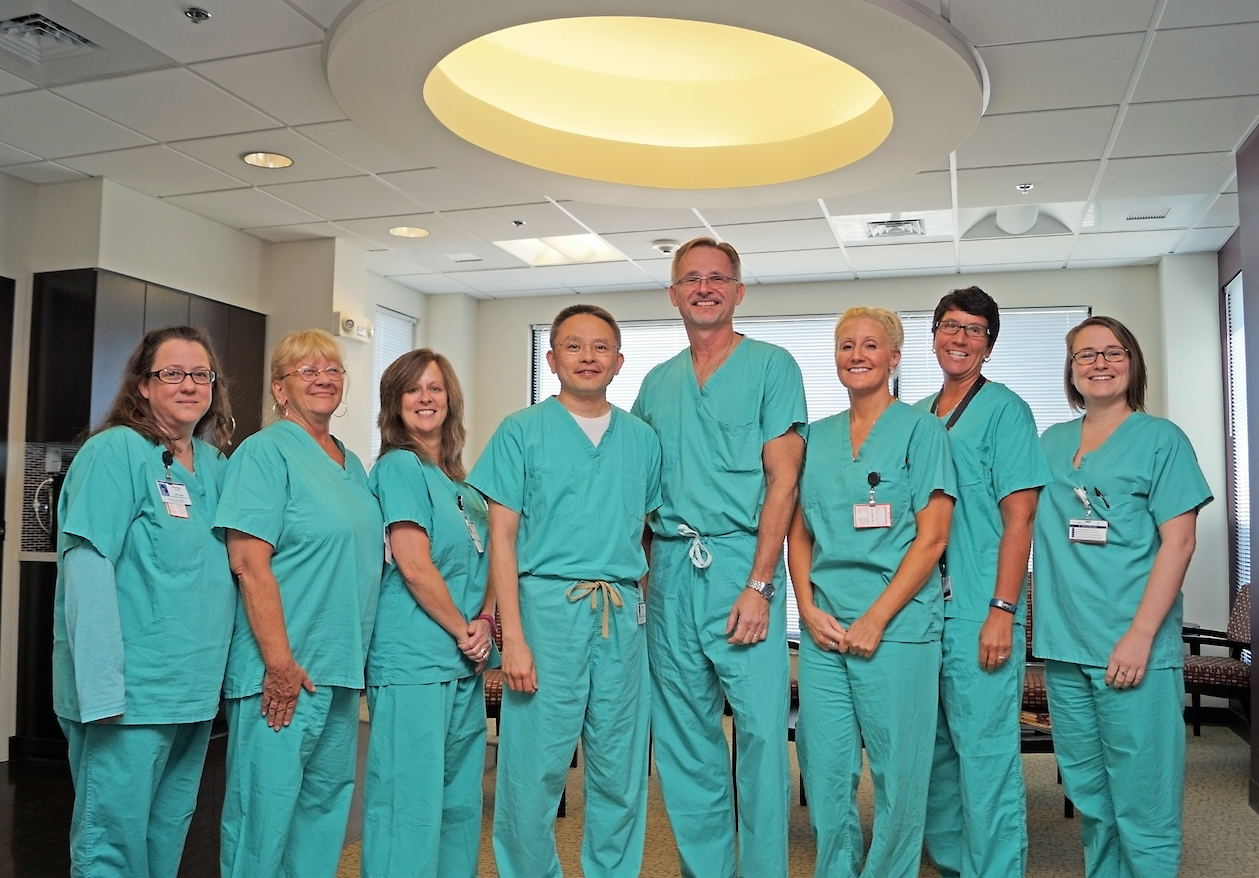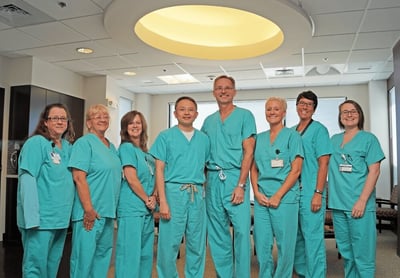 A Day in the Life: Our IVF Lab Staff"
class="bg-img"
fetchpriority="high"
loading="eager"
decoding="async">
A Day in the Life: Our IVF Lab Staff"
class="bg-img"
fetchpriority="high"
loading="eager"
decoding="async">
Written By: Women & Infants Fertility Center on April 9, 2020

Our in vitro fertilization (IVF) lab staff is a lively, busy bunch. They took a moment in between comforting patients, intracytoplasmic sperm injections (ICSI), freezing and thawing eggs, and meticulous record keeping to describe what a day in the IVF lab is like. Lab staff includes Lab Director Shunping Wang, PhD, HCLD; Lab Manager Richard Hackett. MS, HCLD; and embryologists Megan Bonner, Benning Cao, Susan Casey, Julie Labreche, Monique O’Brien, and Deborah Pierce.
Taking a typical team approach, our lab team has compiled the following insights into their day in the life of serving the couples and individuals seeking fertility treatments to build their families.
A typical day starts at 6 a.m., testing all the equipment (incubators, waterbaths, bench tops, stage warmers, liquid nitrogen tanks, gas cylinders, and sperm counting chambers, etc.) to make sure they are functioning properly.
Then we begin looking at things: checking fertilization, grading cleaved embryos, grading blastocysts, preparing for embryos transfers, preparing for embryo cryopreservation, biopsying blastocysts, doing egg retrievals, performing embryo transfers, processing sperm, performing inseminations, performing ICSI, freezing embryos, and making culture dishes.
At about 4 p.m. we close up the lab and get things ready for the next day.
The favorite part of my day is when I look up pregnancy results on a patient whose cycle I participated in, either insemination, embryo transfer, sperm preparation, or any of the other procedures we perform, and find out they are pregnant.
One of the most common phases you hear in the lab is “Guess who’s pregnant? …” It definitely takes a group effort to accomplish an IVF cycle.
That I am working at a premier fertility center where the patient’s interests come first. And that is something that everyone in the Center believes.
Some of the challenges we face are early mornings and sometimes late nights and of course weekend call, but that is just the price of providing excellent care. The biggest challenge though is if things don’t go so well for a patient – low fertilization, poor embryo development, no pregnancy – then we look at what has happened in the lab to see if there was anything we could have done to improve things or if it was sadly just a poor cycle. Is there a new technique that might work better for this patient. What is it that we could do next time, if anything, to make things go better?
We work with the doctors to implement their individualized plan for the patient. We work with the nurses to organize the IVF cycle. Also, we spend a lot of time working with researchers trying to find the causes of infertility and trying to improve IVF success.
Everyone in the fertility clinic plays a significant role that leads to helping people overcome infertility. Dr. Eden Cardozo shares what her day is like as a fertility doctor.
Because I wanted to help people become parents.
I advise patients to try their best to relax and know that everyone in the lab is behind them doing their best to give them success.
The total combined experience in the lab is over 150 years.
Every morning we check on 70 pieces of equipment and environmental conditions to make sure they are functioning properly.
Disclaimer: The content in this blog is for informational and educational purposes only and should not serve as medical advice, consultation, or diagnosis. If you have a medical concern, please consult your healthcare provider or seek immediate medical treatment.
Send Us A Message
90 Plain Street,
Providence, RI 02903
Copyright © 2026 Care New England Health System